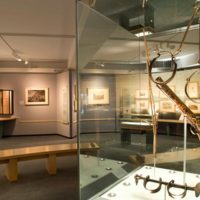
National Maritime Museum
The National Maritime Museum is the largest maritime museum in the world. It forms part of the Royal Museums Greenwich UNESCO World Heritage Site. The NMM houses ten galleries that all showcase Britain’s Maritime History. Its mission is 'to enrich people’s understanding of the sea, the exploration of space, and Britain's role in world history’. ‘The Atlantic Worlds Gallery,' launched in 2007 for the commemoration of the bicentenary, charts the interconnections between Britain, Africa and the Americas between 1600 and 1850. The gallery is about the movement of people, goods and ideas across and around the Atlantic Ocean from the 17th century to the 19th century. The connections created by these movements affected people across three continents, impacting on their cultures and communities and shaping the world we live in today. Four main themes are explored within the gallery, including exploration, war, enslavement and resistance. These displays benefited extensively from the museum's purchase of the Michael Graham-Stewart Slavery Collection in 2002. 'Atlantic Worlds' charts the triangular trade through African civilisations, enslavement and the Middle Passage, and the abolition movement. It recounts the stories of some of the people involved in the resistance movement and the campaign for the abolition of the transatlantic slave trade – including Toussaint l’Ouverture, Olaudah Equiano and Samuel Sharp whose acts of resistance and rebellion were crucial to the turning of European public opinion against the trade. Its narrative also goes beyond the achievement of legal abolition in Britain, to include discussions of the Royal Navy's involvement in suppressing the trade world wide.
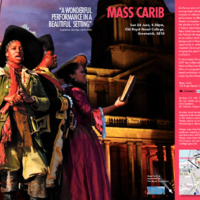
Mass Carib
Mass Carib is a choral performance piece written by Felix Cross. In 2007 it was performed outdoors at the Royal Naval College in Greenwich by Nitro Theatre Company, as a finale to the Greenwich and Docklands International Festival. To accompany the performance, the festival collaborated with the National Maritime Museum and Nitro on a programme of workshops in schools in Greenwich exploring the themes of the production. Mass Carib was written as a Requiem using the liturgical form of the Catholic Mass. It draws on music from West Africa, eighteenth-century Europe and various Caribbean islands. Mass Carib is sung in English, French, Patois, Latin and Yoruba.
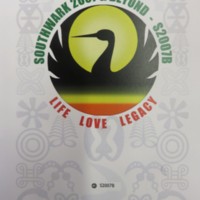
Southwark 2007 & Beyond (S2007B)
The Southwark 2007 & Beyond Steering Group was established to correct perceived misinformation about Britain's role in perpetuating slavery, and to promote education and dialogue on anti-slavery resistance and human rights. The Steering Committee was composed of representatives from Southwark's Afrikan, Afrikan Caribbean and Afro-descendant communities, and the year-long programme of events was funded by Southwark Council. August 2007 was a key month of the commemorative programme, focused on 23 August, the United Nations International Day for Remembrance of the Slave Trade and its Abolition, and the anniversary of the beginning of the Haitian Revolution. A 'Vigil of Remembrance, Resistance and Repairs' included speakers, performances and a libation ceremony. Other events included 'A Bicentennial Dialogue' featuring a keynote address by Dr Joy DeGruy-Leary. The publication 'Abeng Soundings: Abolitionist Landmarks of our Freedom March', co-authored by Esther Stanford of Rendezvous of Victory, provided an overview of the resistance efforts of African freedom fighters against slavery.
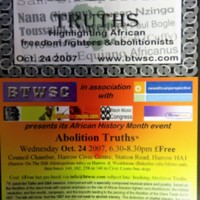
Abolition Truths
Abolition Truths was a panel-led talk and Q&A session at Harrow Civic Centre in October 2007, led by a creative arts community group Beyond the Will Smith Challenge (BTWSC). The event had a particular emphasis on the role of African freedom fighters and abolitionists, the Haitian Revolution, and the revolts, campaigns and boycotts leading to the passing of the 1807 Act. The event was interspersed with music and poetry, including a musical piece 'Then to Now' performed by Africanus Britanicus, and featuring HKB Finn & Co, which told the story of slavery and its legacy across the African diaspora. Teenage poet Stefan Testsola performed a poem on the theme of abolition. There was also a presentation of the Professor Allotey Science Prize, awarded to Harrow students of African descent.
Other BTWSC events in November 2007 included a discussion session with Ms Serwah, 'Putting the Abolition & Slavery Into Perspective' at Willesden Green Library, presented in association with Brent Black History Brent Library. 'From The Talking Drums to Rap & Grime' at Tavistock Hall in Harlesden commemorated the Abolition Act through narration and a musical concert.
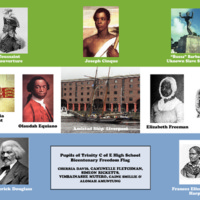
Bicentenary Freedom Flag
The Bicentenary Freedom Flag was displayed alongside an exhibition about Wartime Black History at Manchester Town Hall. The project was a collaboration between staff from Manchester City Council Corporate Services Black Staff Group and pupils of Trinity Church of England School in Manchester. The flag recognised the work, struggles and sacrifices of those who brought the slave trade to an end, and featured images of prominent individuals on the background of the Sierra Leone flag. Those featured on the flag included Toussaint L'Ouverture (General of the Haitian Uprising), the abolitionist Olaudah Equiano, the anti-slavery orator Frederick Douglass, the statue in Barbados of 'Bussa', the unknown slave, guide of the Underground Railroad Harriet Tubman, and Joseph Cinque, leader of the Amistad slave ship revolt. The accompanying exhibition included pupils' articles and creative writing. It also examined the history and role of the West India Regiments, British colonial infantry regiments largely recruited amongst freed slaves from North America and slaves purchased in the West Indies.